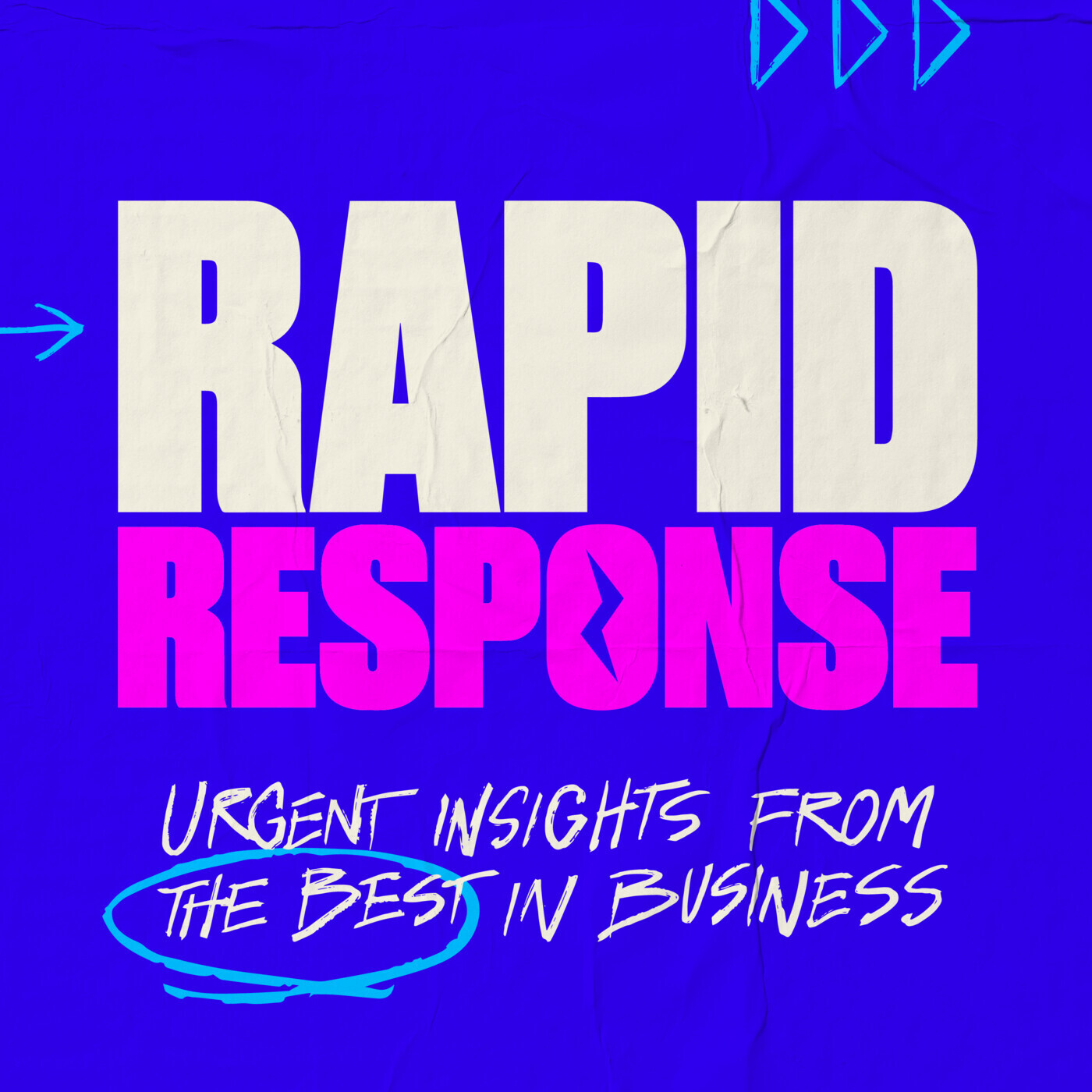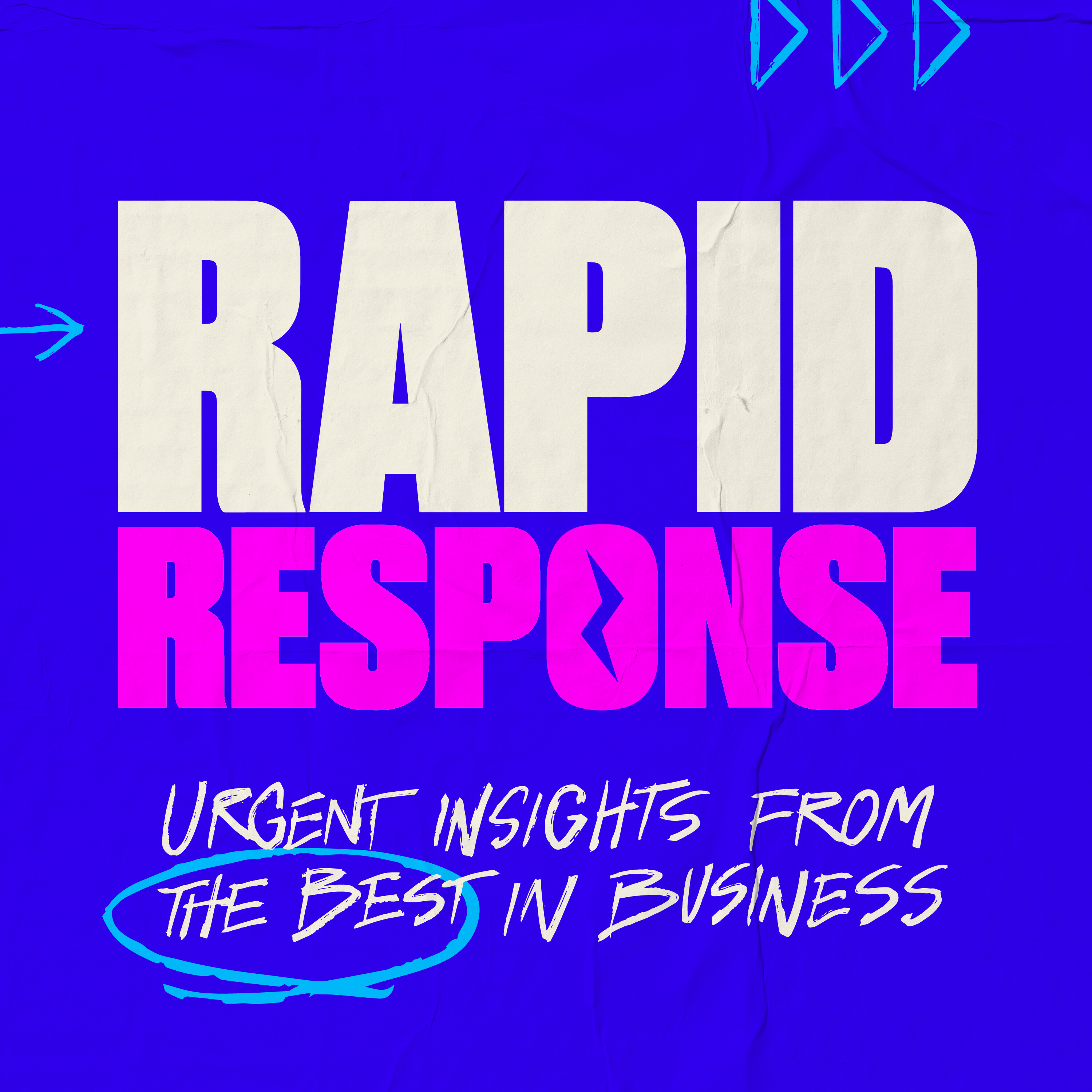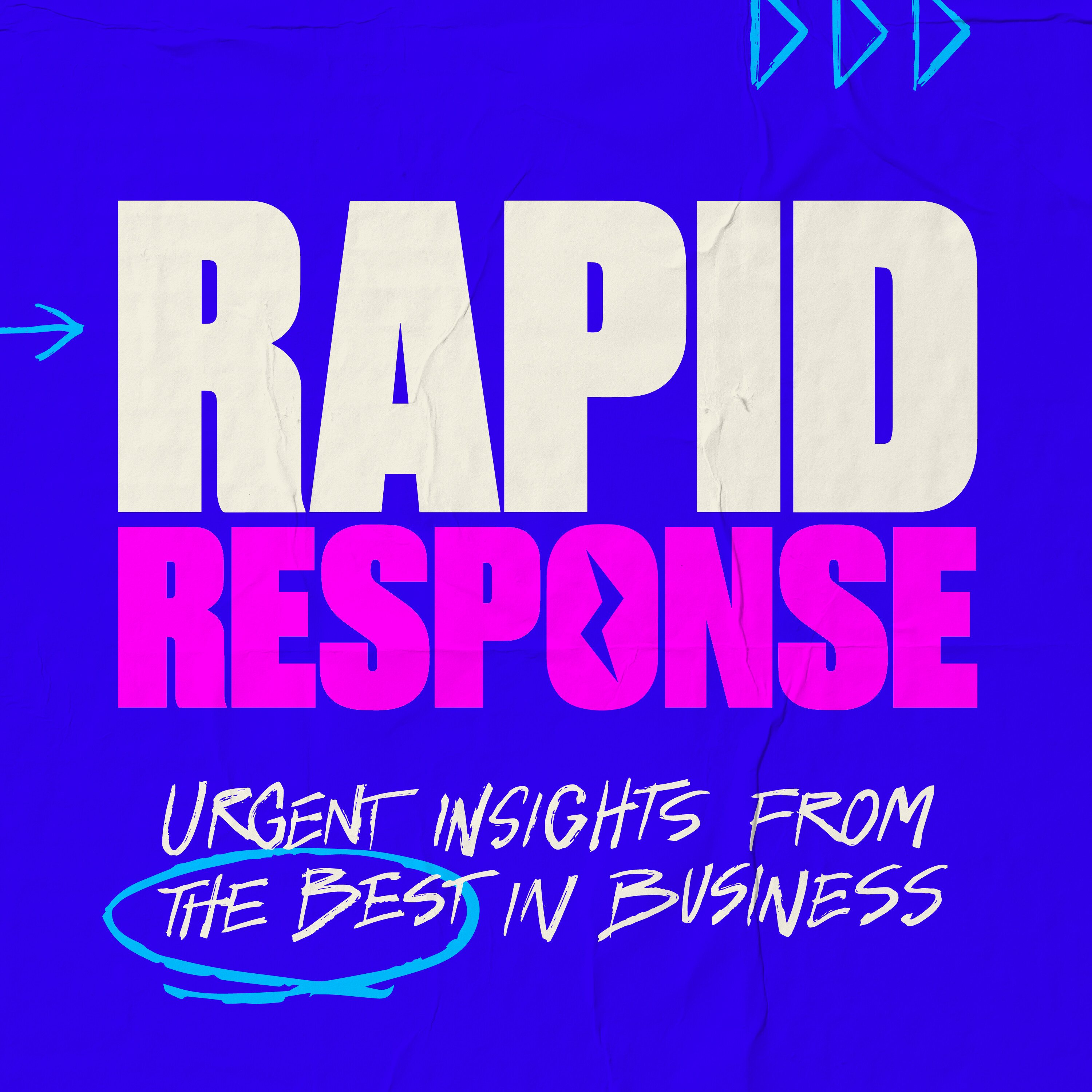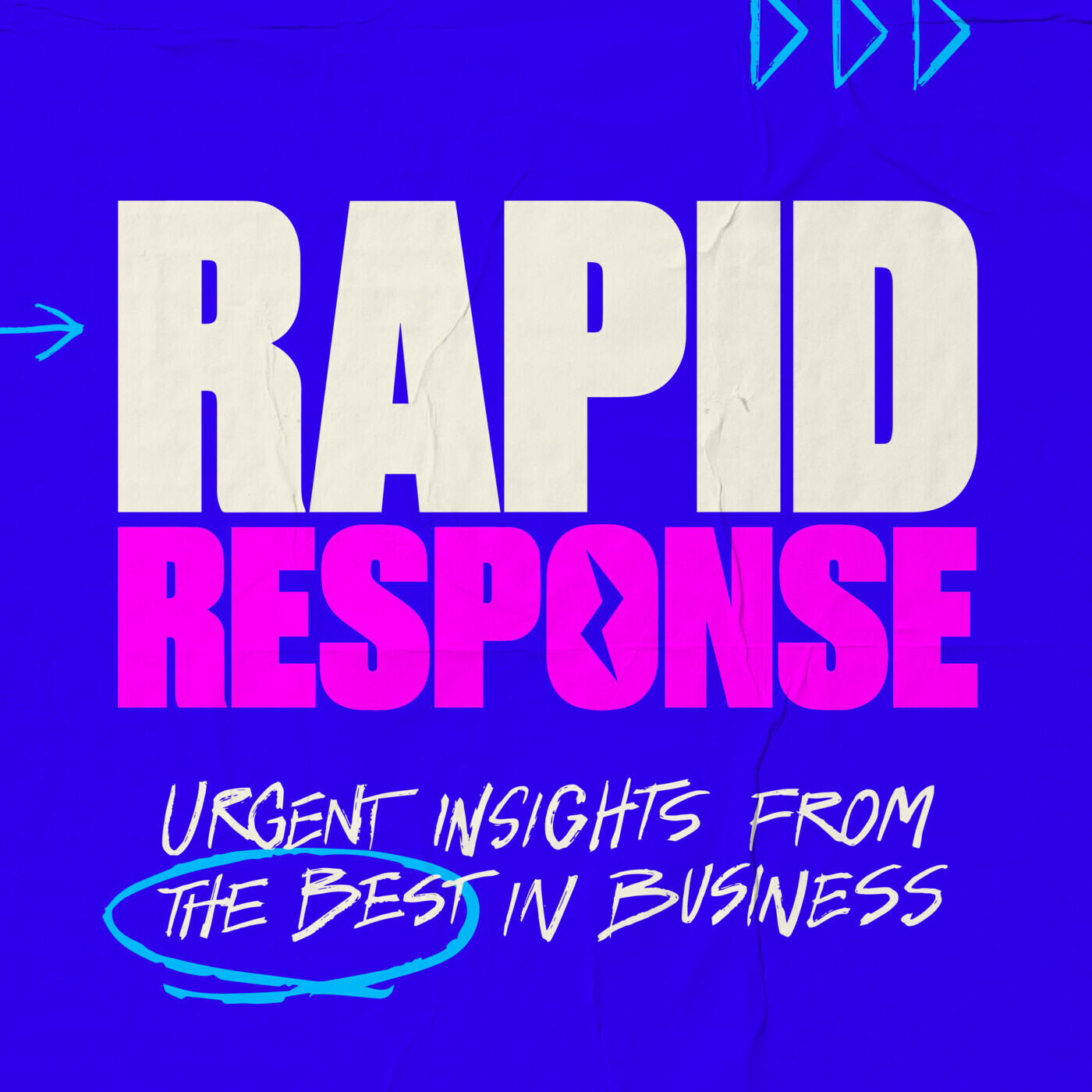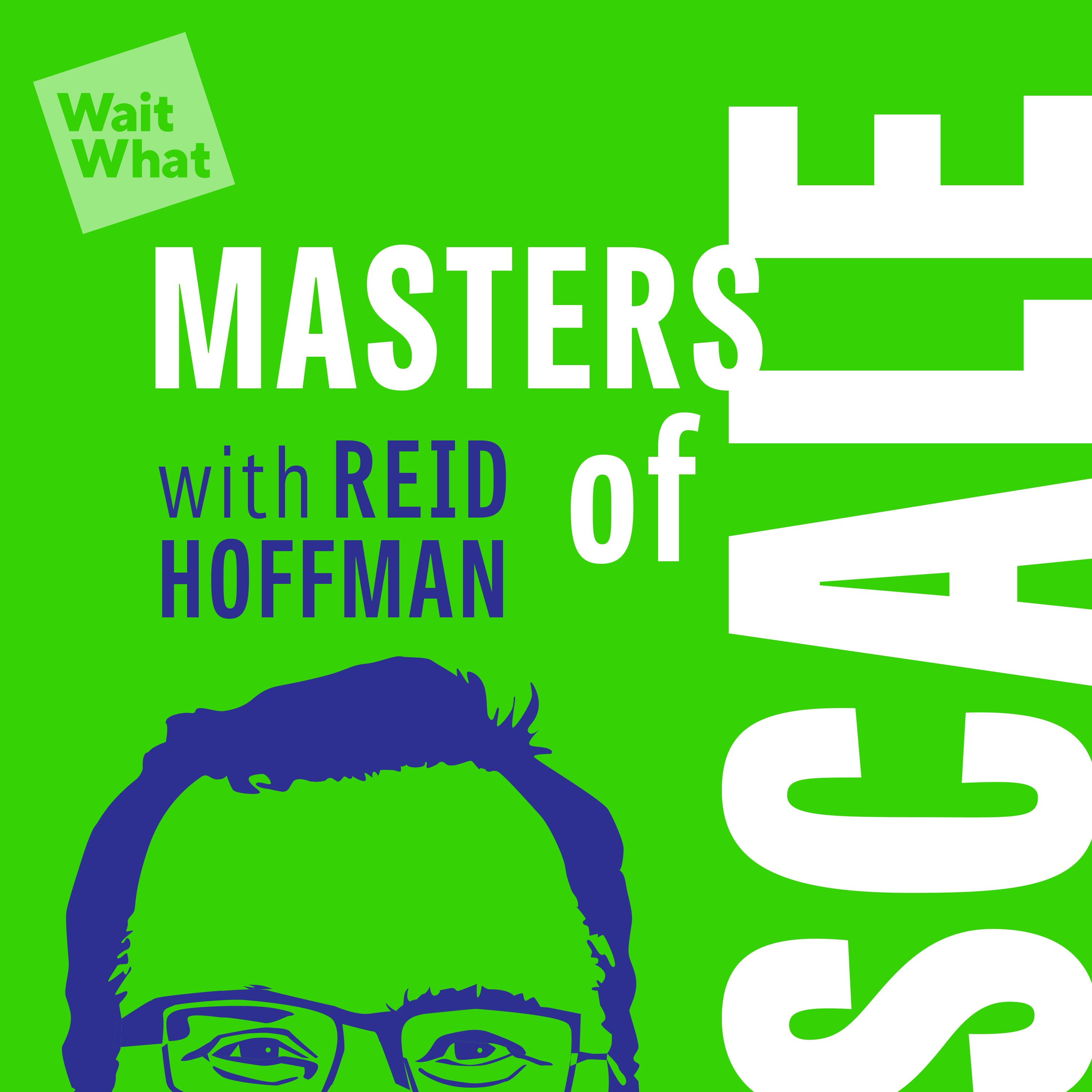
April 25, 2024 • 27min
Rapid Response: Fighting media's reality distortion, w/Axios CEO Jim VandeHei
Masters of Scale

Key Takeaways
- America may not be as divided as media portrays - Jim VandeHei argues that 70-80% of Americans are normal people just trying to live their lives, not engaged in extreme political warfare
- Social media and algorithms amplify the most provocative voices, giving a distorted view of reality
- Most people have nuanced political views, not extreme partisan positions
- Media business models incentivize covering political conflict, making politics seem more contentious than it is for most people
- Axios is preparing for AI by focusing on human expertise and in-person connectivity, not trying to compete on AI technology
- VandeHei believes personal AI assistants will curate news for individuals in the near future
- Media companies should focus on being trusted, not neutral - neutrality can lead to false equivalence
- Business leaders should be selective about speaking out on political issues, focusing on core business functions instead
- People have more control over their circumstances than they realize - focus on what you can control rather than external factors
Introduction
Jim VandeHei, co-founder and CEO of Axios, joins Rapid Response host Bob Safian to discuss the state of media, politics, and business leadership. VandeHei argues that America is not as divided as commonly portrayed and that media companies need to adapt to coming changes in how people consume news. He also shares insights on Axios' strategy, the challenges facing other media companies, and lessons from his new book on leadership.
Topics Discussed
America's Perceived Division (02:18)
VandeHei explains why he co-authored an essay challenging the narrative that America is hopelessly divided:
- Social media and cable TV give the impression that everyone is engaged in tribal warfare, but this isn't reflective of reality
- 70-80% of people are "normal" and just trying to live their lives, not obsessed with politics
- Algorithms amplify the most provocative voices, distorting perceptions
- "Most people have pretty nuanced views," says VandeHei, contrary to extreme partisan portrayals
- Polling shows 90% of Republicans and Democrats agree on fundamental American rights like freedom of speech and religion
Media Business Models and Polarization (04:39)
VandeHei acknowledges media business models contribute to perceptions of polarization:
- Top traffic-driving stories for most outlets are about politics
- Political coverage tends to focus on conflict
- This creates the impression that "politics is just all conflict all the time"
- The two-party system forces people into tribal camps, even if their actual views are more nuanced
Axios' Approach to AI (08:00)
VandeHei explains Axios' strategy for adapting to AI:
- Focus on human expertise and sourcing that AI can't replicate
- Build in-person connectivity around shared passions
- Developing a membership program around top journalists
- "Even if [AI] is the case, people are still gonna need human expertise, human sourcing in an artificial and virtual world," says VandeHei
The Future of News Consumption (09:13)
VandeHei predicts how people will relate to news in the near future:
- Personal AI assistants will curate news for individuals
- Assistants will know users' interests, preferred formats, and consumption habits
- Content may be customized in novel ways (e.g. "sung to you by Taylor Swift")
- Axios aims to be "well ahead of that change in consumer behavior"
Challenges Facing Other Media Companies (14:29)
VandeHei discusses struggles at companies like BuzzFeed:
- Over-reliance on social media platforms and external funding
- Difficulty defining a clear identity and business model
- Running media companies is "hard" and "exhausting" with small margins for error
- "This isn't a SaaS company. This isn't a whiz bang technology company. It is a human labor company," says VandeHei
Axios' Approach to Neutrality and Trust (16:49)
VandeHei explains Axios' editorial philosophy:
- Goal is to be "trusted" rather than neutral
- Aim to have "smart people who have authentic subject matter expertise" provide efficient, important information
- Employees asked not to publicly engage in politics or endorse candidates
- "I just want people who are persuadable to real truth to take us seriously and to give us a chance," says VandeHei
Advice for Media Consumption (18:17)
VandeHei offers tips for a "healthy media diet":
- Stop getting news from social media
- Don't share articles you haven't read
- Be wary of content from unknown sources
- Consume less news overall
- Find trusted sources aiming for truth
- "Try to find some sources of news and information that you think are trying to get to the closest approximation of the truth, and then you're gonna have a pretty healthy media diet," advises VandeHei
Business Leaders and Political Issues (21:24)
VandeHei discusses whether business leaders should speak out on political topics:
- Companies should focus on their core products/services
- Only address issues directly related to the business and customers
- Pushback against pressure to take positions on everything
- "This idea that all these CEOs got trapped into about because your employees are angry, they want you to take a position on everything. Like, why would you take a position on everything?" questions VandeHei
Lessons from VandeHei's New Book (23:37)
VandeHei shares key ideas from his upcoming book "Just the Good Stuff":
- Focus on what you can control rather than external circumstances
- Make daily choices that improve your life (diet, exercise, kindness, etc.)
- Identify key "buckets" that need to be full for personal effectiveness
- "If you stop whining and worrying about the things that are outside of your control and put all of the emphasis on what I kind of call my happiness matrix...you're going to be a much more productive employee," says VandeHei
Maintaining Optimism (25:32)
VandeHei explains his hopeful outlook despite covering challenging topics:
- Draws inspiration from his own unlikely success story
- Believes others can achieve more than they think possible
- Hopes his book will be a "bible" for those trying to advance their careers
- "If a schmuck like me could go on to interview presidents, could start a couple of companies, be able to make more money than I thought possible, doing something that I love. How the h**l could I not be optimistic?" says VandeHei
Conclusion
Jim VandeHei offers a refreshing perspective on the state of American politics and media, arguing that the country is less divided than commonly portrayed. He advocates for focusing on human expertise and trust as media companies adapt to AI and changing consumption habits. VandeHei's pragmatic approach to business leadership and personal growth provides valuable insights for navigating an increasingly complex world. While some may disagree with his stance on business leaders avoiding political topics, his emphasis on controlling what you can and maintaining optimism offers a constructive path forward.

